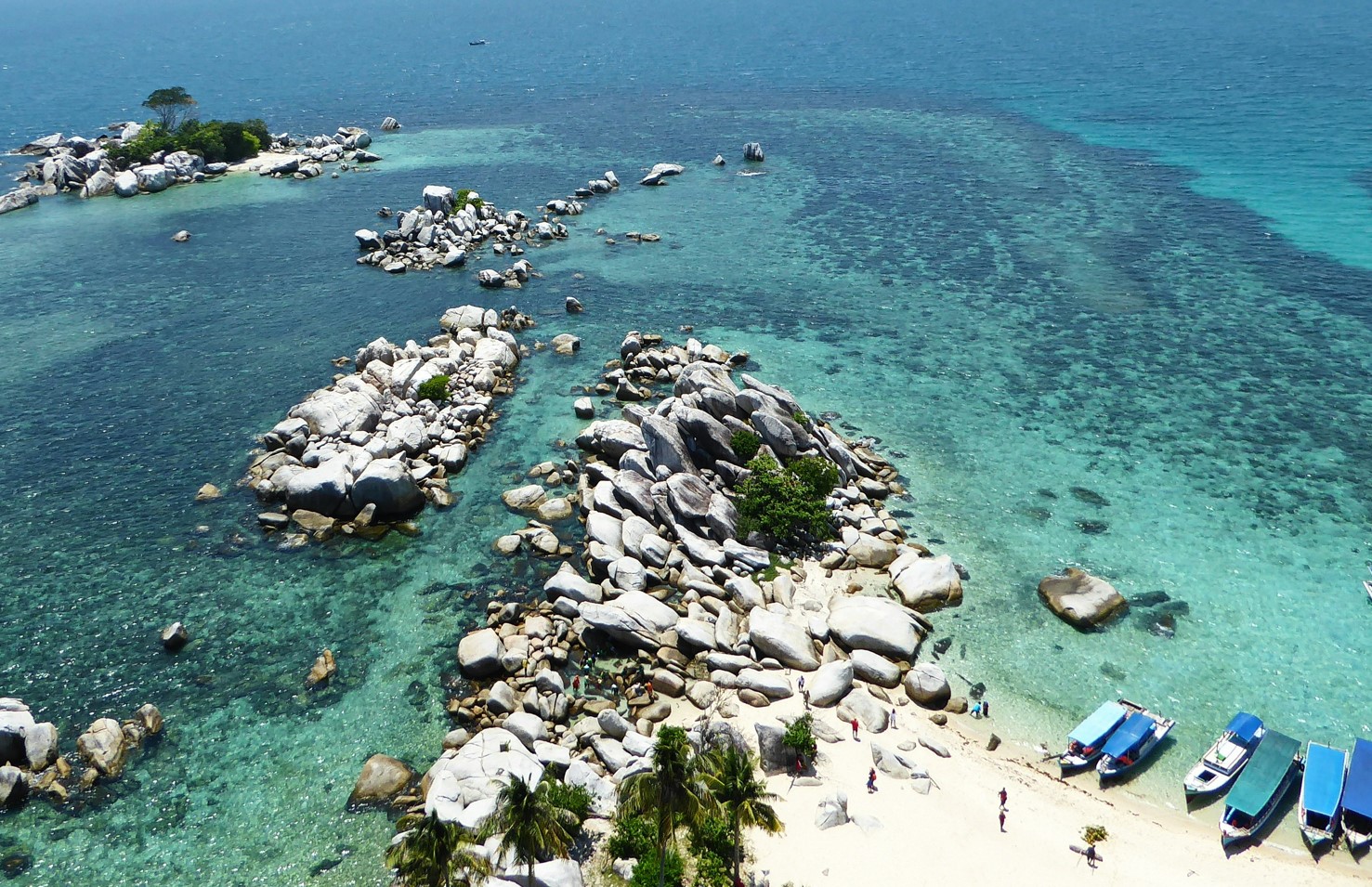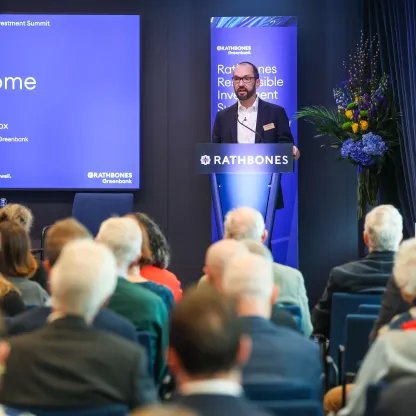The oceans are becoming more acidic, putting yet another of Earth’s life-support systems under mounting pressure.

Sustainability update September 2025
Article last updated 13 October 2025.
Ocean systems under stress, but treaty momentum builds
This month, the Potsdam Institute for Climate Impact Research released an update to its Planetary Health Check report, confirming that ocean acidification has become the seventh of nine critical earth systems boundaries to be breached. The planetary boundaries model maps out the interconnected natural systems that act as our planet’s life support. When a boundary is crossed, it indicates that the linked system is being placed under unsustainable stress and at risk of collapse. Ocean acidification is the latest boundary to be crossed, driven primarily by the burning of fossil fuels and land use change. Only two ecological systems now remain within safe operating limits: air pollution and the stratospheric ozone layer.
The crossing of this boundary provides fresh motivation to reach a global consensus on protection of the oceans, with a note of optimism coming on 19 September when Morocco became the 60th country to ratify the High Seas Treaty, marking the point at which the legislative proposal could pass into international law. Morocco’s action triggered a 120-day timeline for the Treaty to be officially recognised and implemented, paving the way for the first ever Ocean Conference of Parties (Ocean COP1) expected in 2026.
With less than 1% of oceans either fully or highly protected and nearly 10% of marine species under threat of extinction, the Treaty is crucial to the expansion of global marine protected areas (MPA), establishing sanctuaries for the recovery and restoration of marine biodiversity, and the creation of safeguards to ensure long-term food security for the billions who depend on ocean resources. Oceans absorb around 90% of the excess heat from worldwide carbon emissions, produce up to 80% of the world’s oxygen, and contribute significantly to global economies.
Currently, around two-thirds of ocean coverage lies outside any sovereign jurisdiction. The lack of any legal oversight in these areas increases the risks of marine resource mismanagement and overexploitation. A patchwork of regional agreements and conventions provides limited scope for coordinated marine conservation or for the fair and equitable distribution of natural resources. The High Seas Treaty aims to fill critical regulatory gaps, complement and expand national legislative efforts, and begin the implementation of global conservation measures. The Treaty’s passage into law represents a historic moment in global ocean governance, but much still depends on the scale and speed of international cooperation secured through negotiations like Ocean COP1.
The UK government was not among the Treaty’s initial 60 signatories but nevertheless introduced its Biodiversity Beyond National Jurisdiction Bill to parliament in late September, opening the door to future ratification. UK officials also joined counterparts from the Chilean government in announcing new steps to reduce ocean-related emissions and promote marine conservation ahead of November’s COP30 negotiations in Brazil. Plans under consideration included the gradual phaseout of offshore oil and gas drilling, increased investments in renewable marine energy, decarbonised shipping, and enhanced sustainable fisheries and marine conservation programmes.
UN acts to advance global AI governance through cooperation
Following months of negotiations in New York, UN Secretary General António Guterres welcomed the General Assembly’s decision to establish two new mechanisms to strengthen international cooperation on the governance of artificial intelligence (AI): the UN Independent International Scientific Panel on AI and the Global Dialogue on AI Governance.
The 40-member Panel will be tasked with connecting advances in AI development with policymaking to generate an annual assessment report “issuing evidence-based scientific assessments synthesising and analysing existing research related to the opportunities, risks and impacts of AI”. The Panel’s policy-relevant reports are intended to feed into debate among governments and broader stakeholders to discuss global cooperation, share best practices and development challenges, and facilitate open, transparent and inclusive discussions on elements of AI governance supporting the closure of digital divides and the wider objectives of the Sustainable Development Goals. The Global Dialogue will also be tasked with convening intergovernmental talks to agree on priority areas for future international AI governance.
The collaborative approach builds on the objectives of the UN Global Digital Compact, negotiated by 193 member states to protect human rights online and ensure clarity and standards in international law. The Compact calls on all stakeholders to work for secure digital spaces, inclusive digital economies, and strong and interoperable international data governance. In September, Italy became the first country in the EU to approve comprehensive national AI regulation, including the prison terms for the illegal dissemination of harmful AI-generated or manipulated content. Harsher penalties will also be sought for AI-related crimes such as fraud and identity theft.
While policy measures will be critical for effective regulation of AI, investor engagement with individual companies can encourage the adoption of responsible AI practices now. The World Benchmarking Alliance’s Collective Impact Coalition on Ethical AI, of which Greenbank is a member, won recognition at the 2025 PRI Awards for its efforts to protect and promote digital human rights through investment and stewardship. Since launching in 2022, the Coalition has worked to raise awareness of the human rights risks and opportunities presented by AI, encourage tech sector companies to adopt and enhance ethical AI policies, and build investor capacity to lobby for increased governance and accountability.
Climate pledges advance at UN summit, but challenges remain
Over 100 nations spoke at the Climate Week NYC summit in New York – the largest climate gathering outside the annual COP talks – with many countries using the occasion to submit or announce intentions to pledges to cut greenhouse gas emissions in line with their 2035 Nationally Determined Contributions (NDC). Under the Paris Agreement’s “ratchet mechanism”, countries revise and resubmit their NDC every five years to increase the scope and scale of their emissions reduction targets. At the New York summit’s conclusion, 63 countries – including Russia, the world’s fourth-largest emitter – had submitted or announced 2035 climate pledges, covering half of global emissions.
China’s leader Xi Jinping personally pledged to reduce his country’s emissions by 7-10% below peak levels by 2035 while “striving to do better”. The pledge marked a significant shift in national ambition as it was the first time China had promised to place an absolute limit on emissions across its economy. China’s revised NDC nevertheless attracted criticism for being too conservative (China alone accounts for 29% of global emissions) and not reflective of its expanding clean energy networks. Analysis by the Asia Society Policy Institute indicated that economy-wide emissions in China would have to fall by at least 30% from the peak by 2035 to align with a 1.5 °C global warming limit.
By comparison, the EU was only able to offer a “statement of intent” to cut emissions having struggled to reach a bloc-wide agreement. Member states have discussed a legally-binding target to cut net greenhouse gas emissions across the EU by as much as 90% by 2040, but regional governments have pushed back on approving a deal, with many pivoting to focus on increased defence spending and stabilising faltering economic growth. European Commission president Ursula von der Leyen nevertheless stated that the EU would submit its revised 2035 NDC to the UN before the COP30 talks in November.
The US submitted its 2035 pledge at the latter end of Joe Biden’s presidency in 2024. Donald Trump later signed an executive order withdrawing the world’s second-largest emitter from the Paris Agreement on the first day of his presidency – it’s therefore assumed that the 2024 pledge is now void. Among other major emitters who failed to submit revised 2035 pledges at the summit, India indicated it would submit its revised pledge at COP30 while Mexico and Indonesia advised they were “still consulting with industries” about their proposed NDC targets. Neither country specified when their submissions would be made.




